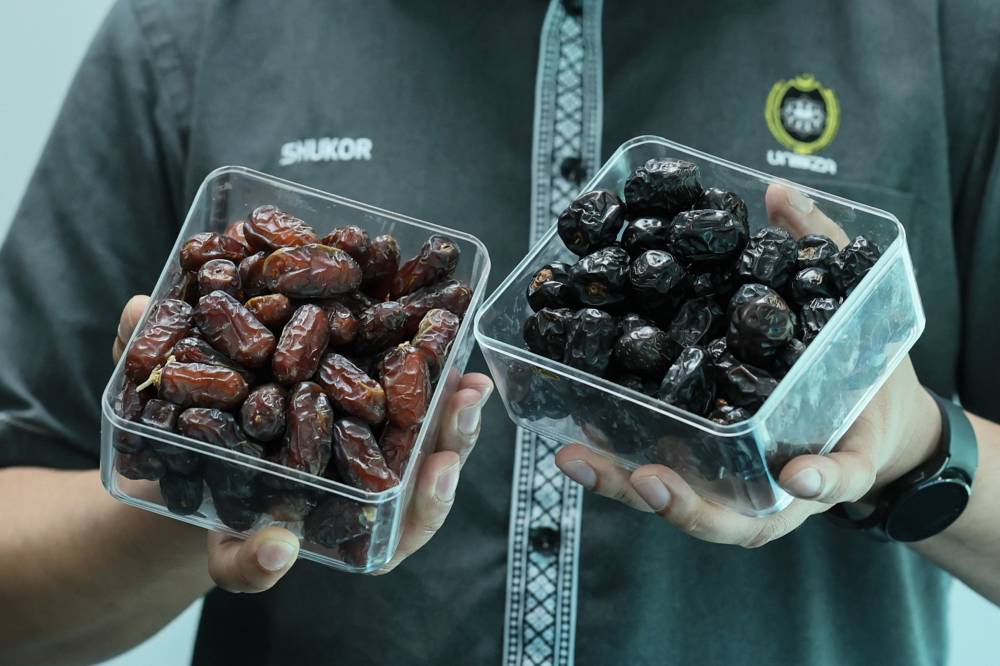Dates don't raise blood sugar! Study shows they can aid diabetes treatment
Dates found safe and helpful for diabetics in Malaysian study

KUALA NERUS - Diabetics are normally advised to avoid eating dates, allegedly because of their high sugar content, which can make the patient's condition worse.
However, a group of researchers from Universiti Sultan Zainal Abidin (UniSZA) dispelled the notion of the "sunnah food” through a study, known as Tibb Treatment of Diabetes, by using dates as supplementary food.
UniSZA deputy vice-chancellor (Research and Innovation) Professor Ts Dr Shukor Abd Razak said the three-year research, which started in November last year, included a study on the effectiveness of dates as supplementary food for the treatment of diabetic patients at Sultan Zainal Abidin Hospital (HoSZA) and the Kuala Nerus Darussyifa Treatment Centre (Darussyifa).
"Before, diabetic patients were normally advised to be careful if they wanted to eat dates because of the possible risk of change in the sugar level in their blood.
"This was despite many studies carried out abroad that reject the claim. In fact, most studies found that dates have many substances necessary for health such as magnesium, calcium and iron," he told Bernama here.
Shukor said the research project, funded by UniSZA amounting to RM300,000, involved the collaboration of expertise from the Faculty of Contemporary Islamic Studies and the Faculty of Medicine.
He said the study would also explore other materials used for the treatment of diabetes as contained in classic Malay books, such as herbs; Islamic medical practices; theoretical and practical supportive treatment; as well as the challenges that nurses have to face in helping Muslim diabetes patients fulfil their religious obligations, such as prayer when warded in the hospital.
"This research does not mean that we are doing away with clinical treatment. We will still provide clinical treatment before offering patients additional treatment through eating dates.
"Patients who want to try the treatment will be sent to our consultants to learn more about the method of eating dates," he said, adding that the research is expected to take three to five years.
Meanwhile, Associate Prof Dr Berhanuddin Abdullah of Darussyifa said the centre had been providing dates as supplementary food for diabetic patients for the past two years.
More than 20 diabetic patients have been cured of the illness after taking the Ajwa and Mariami dates as supplementary food, he said.
"Dates have high fibre content and they can eliminate unhealthy sugar and replace sugar with energy for the body. This is reflected in how strong the pilgrims when performing the Umrah and Haj are because of eating dates.
"For patients who have been suffering from diabetes for a long time and experience high sugar content, we would advise them to eat Mariami dates which are less sweet than Ajwa dates which are softer and sweeter," he said.
He said patients are advised to take between one and five dates per day, depending on their respective sugar levels.
"For patients who need to take insulin injections with high doses, we will advise them to eat five dates a day to prevent them from experiencing symptoms of hypoglycemia due to high doses of insulin," he said. - BERNAMA









